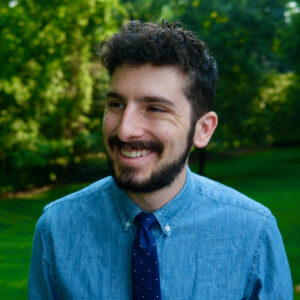By Shelby Stewart
Staff Writer
A Brandon High School grad is making strides in the research of triple-negative breast cancer. 
“My dissertation research was based on finding new ways to kill the most aggressive and deadly type of breast cancer, known as triple-negative breast cancer,” said Bill Tahaney, a 2010 BHS Grad. “Triple-negative breast cancers almost always have mutations in a gene called p53, which is critical for the cell to respond to damaged DNA.”
Tahaney, 29, graduated from Alma college with a degree in biochemistry, then went to Baylor College of Medicine in Houston, Texas for his Ph.D in Molecular and Cellular Biology. His research was influenced by his family and his mentor.
“Like most people, my family has been heavily influenced by cancer, driving my interest in this subject,” he said. “However, my primary reason for joining the lab in which I conducted my research was the knowledge and skill of my mentor, Dr. Powel Brown.”
The dissertation defense went smoothly, and the research is continuing.
“I used drug screening, genetic, and molecular biology techniques to find drugs that can kill these p53-mutant triple-negative breast cancer cells, while not killing surrounding cells,” he said.
“I found multiple drugs that can kill these cells, and then focused my dissertation on two of these drugs: one that kills cells through a process known as ferroptosis, and another drug that stops these cells from being able to divide.
With further research and development, we anticipate these drugs being clinically tested for the treatment of these aggressive cancers. We are working on making these drugs better absorbed by the body and learning more about how the drugs kill these cancers. We then hope to conduct critical trials for the treatment of patients with p53-mutant triple-negative breast cancers.”
Now that Tahaney has finished his Ph. D., he said he will be working at MD Anderson Cancer Center as a postdoctoral fellow for a few months to continue his research and write scientific papers. After, he said he would return to work at biotechnology companies.
“One thing I’ve learned after working on many teams trying ceaselessly to find ways to cure cancer is that finding the truth through science is a worthwhile commitment,” he said. “And one I will always be honored in which to have played even a small role.”
